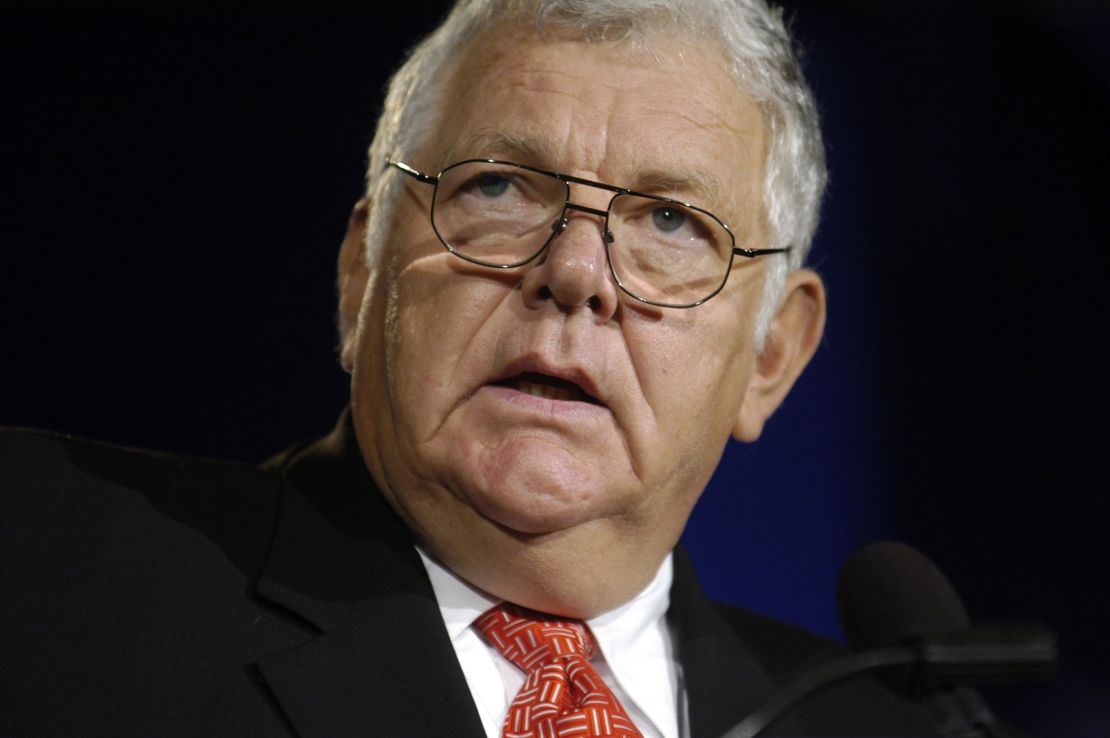Editor’s Note: William J. Bennett, a CNN contributor, is the author of “The Book of Man: Readings on the Path to Manhood.” He was U.S. secretary of education from 1985 to 1988 and director of the Office of National Drug Control Policy under President George H.W. Bush.
Story highlights
William Bennett: Pat Robertson's support of marijuana legalization is misguided
Bennett: Legalizing marijuana will lead to more drug abuse
He says that contrary to Robertson's view, we have had successes in the drug fight
Bennett: Our leaders, including religious leaders, must not undermine the drug war
Evangelical patriarch Rev. Pat Robertson has long been a leader in the conservative movement advocating for a better civil and moral society. But his recent support of marijuana legalization couldn’t be more wrongheaded.
“I really believe we should treat marijuana the way we treat beverage alcohol,” Robertson said last week in an interview with The New York Times. “I’ve never used marijuana and I don’t intend to, but it’s just one of those things that I think: this war on drugs just hasn’t succeeded.”
“It’s completely out of control,” Robertson added. “Prisons are being overcrowded with juvenile offenders having to do with drugs. And the penalties, the maximums, some of them could get 10 years for possession of a joint of marijuana. It makes no sense at all.”

Robertson’s arguments are wrong on each and every fact. First, regulating marijuana like the way we regulate alcohol (or cigarettes) will only result in the increased use and abuse of marijuana, particularly among youths. As the late, great political scientist, James Q. Wilson, put it, “The central problem with legalizing drugs is that it will increase drug consumption.” Arguing that adding a dangerous substance to the legal marketplace will reduce its usage is to renounce all common sense. Does Robertson truly believe that addicts and first-time users will be curtailed once the substance they seek becomes easier to obtain?
To stay on alcohol for a moment: There are about 79,000 alcohol-related deaths each year. The Center for Disease Control calculated that excessive drinking cost the United States $223.5 billion annually and the government pays more than 60 percent of these health care costs. Is that really the model that Robertson would recommend for the betterment of society?
The Household Survey of Substance Abuse tells us that alcohol, more than tobacco and illegal drugs, is the most used and abused drug among youth. Why is that? Because alcohol is legal; drugs are not. Alcohol is easily available; drugs are less so. Alcohol is culturally acceptable; drugs are, for the most part, stigmatized, in large part because they are illegal. Robertson has long respected the importance of the law and the culture. It is a grave error for him to abandon that now.
As for his other claims, the 2011 World Drug Report paints a detailed picture of marijuana abusers. Among cannabis users in treatment in the United States, 80.5% are not married, 90% have obtained an education of 12 years or less; 25% are unemployed and 46% are not in the labor force (of which 55% are students). Of the cannabis users who entered treatment services from 2000 to 2008, nearly a quarter report psychiatric problems. In addition, new research suggests that driving under the influence of marijuana could double a person’s risk of getting in a serious or fatal car crash.
Why should we promote the legalization of a substance that can irretrievably harm our children’s brains and makes our citizens less intelligent, less productive and less safe? Open and unrestricted drug use cannot coexist with a free, safe and productive society.
Moreover, Robertson’s claim that our prisons are overflowing with marijuana users are wildly exaggerated. The U.S. criminal justice system is the largest referral source for drug treatment programs. And, the large majority of inmates in state and federal prison for marijuana have been found guilty of much more than simple possession. The Office of National Drug Control Policy, for example, recently reported that of all the inmates in state prisons, 0.3% are arrested for offenses involving only marijuana possession.
Contrary to Robertson’s view, we have had successes in the fight against drugs. According to the Drug Enforcement Administration, 700,000 fewer teenagers used illicit drugs in 2010 than a decade earlier, a 16% decline. From 2000 to 2010, current marijuana use by teens has dropped 9%, methamphetamine use by teens has plummeted 60%, LSD use has dropped 50%, and current cocaine use among high school seniors has dropped 38%.
There have been other important victories, too. In the late 1980s and early 1990s, with the help of the Partnership for a Drug Free America, America’s policymakers and opinion shapers got tough on drugs. Through movies, television, mass media, and, yes, sermons, America sent a message: Drug use is not culturally or morally acceptable and it will not be tolerated. The nation was committed to defeating the cocaine epidemic, and it did.
We have much work left in our own fight against drugs. We need more drug education and prevention classes in schools, more rehabilitation and treatment centers, and more resources for law enforcement officials. But all this is for naught if our nation’s leaders, including its religious leaders, undermine and abandon the cause.
During a recent trip to Mexico, Vice President Joe Biden was right to reject the idea of legalization. “There is no possibility the Obama-Biden administration will change its policy on legalization,” he said. It’s time for a new bipartisan coalition committed to defending our children and our future from the dangers of drug abuse and addiction. Surrendering, like Robertson suggests, is not an option.
Follow us on Twitter @CNNOpinion
Join us on Facebook/CNNOpinion
The opinions expressed in this commentary are solely those of William J. Bennett.





